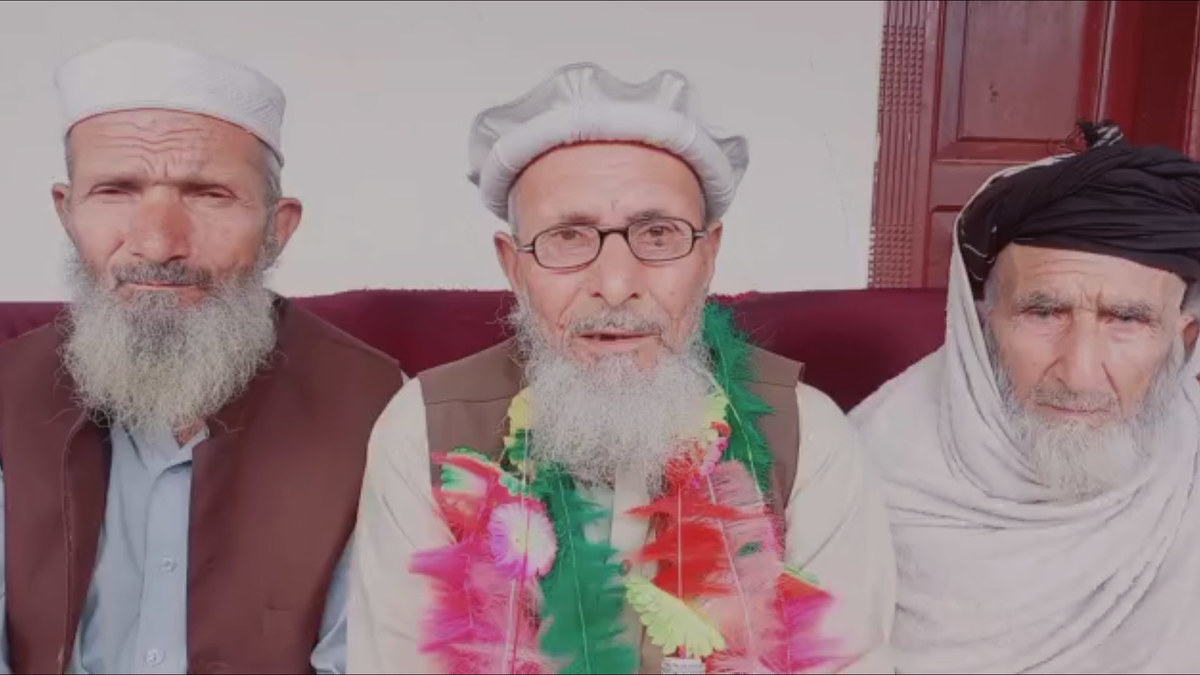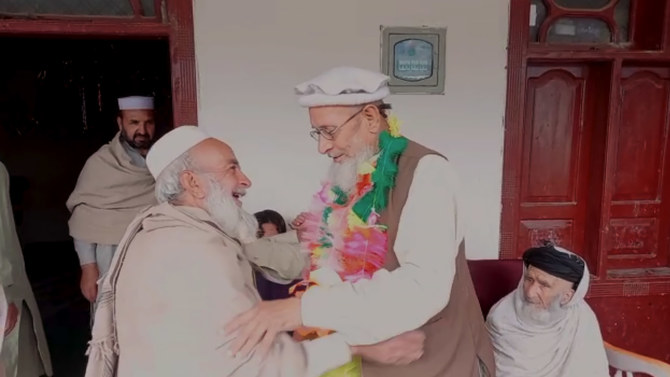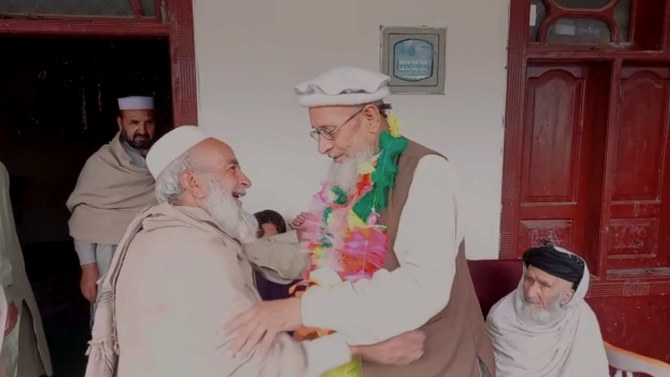PESHAWAR: Mumtaz Khan, an elderly Pakistani man who went missing and stayed in Iran for more than five decades, reunited with his family in the northwestern Pakistani province of Khyber Pakhtunkhwa (KP) this week, with relatives according him an emotional welcome upon return home after ages.
Khan left his home in the Upper Dir district and traveled to Karachi in the 1970s after being scolded by his father for not financially contributing to the household, according to his relatives.
Khan later traveled with his friends to Iran who had convinced him to come along to earn more money, without informing his family. In a video call arranged by Arab News last month, Khan reconnected with his family for the first time in decades.
In an interview with Arab News on Thursday, he said he got married in Iran and promised his wife he would not leave her to find his relatives in Pakistan until their children weren’t grown enough.
“I got married to the daughter of a religious leader there. My wife told me that I would leave and desert her because I’m not the national of her country. But I promised her that I will not go back to my home country unless our children don’t get married,” 73-year-old Khan told Arab News.

The still image taken from a video recorded on June 1, 2023, shows Mumtaz Khan meeting with his family after five decades in Upper Dir, Pakistan. (AN Photo)
“I fulfilled my promise and I’ve two daughters and two sons. One of my sons and the daughters got married and have children now. Now, I sought their permission to let me go to see my brothers and sisters, and then I will bring them here. This way, I departed for my hometown after fulfilling my promise.”
Having moved to Iran at the age of 18, Khan started digging water wells and then switched to construction work, mostly in the port city of Chabahar.
He said he did not try to look for his family in Pakistan earlier as his brothers would have forced him to return home and he could not go back on his word with his wife.
“I thought my brothers would force me to come home and my wife would cry in my absence,” Khan said.
Late last month, Khan entered Pakistan from Iran via the Pakistani border town of Nokundi in the southwestern Balochistan province.
“When I left my home [in Iran], there was a locality called Nokundi where there were a lot of Pashtuns. I got into a car there,” he detailed.
“They took me to a police office where they said that ‘this person is going to Pakistan for the treatment of his leg.’ They (police) simply took my photo and allowed me to go.”
Shafiqullah Khan, a cloth merchant from Pakistan’s Balochistan who works in Iran’s Chabahar, last month shared Khan’s video on Facebook after he came to know of his story.
Arab News made repeated attempts and was among the first media outlets to locate and speak to Khan’s brothers, and finally getting them on a video call through Chabahar-based Shafiqullah.
Khan’s relatives said their decades-long search for him ended last month, when they saw his video on Facebook.
Gulabuddin, Khan’s younger brother, said their entire village in Upper Dir celebrated Khan’s homecoming on May 29, with villagers and guests thronging their home in jubilation.
“Upon the arrival of Mumtaz, we all are very happy and even there is a wave of happiness in the entire village over his homecoming,” he told Arab News.
Khan said his village has “entirely changed,” pointing to much development and paved roads.
“Now, it doesn’t seem to be that old hometown. When I was leaving my village, it was totally different, but now it is entirely changed and developed. Even I didn’t find the tracks and pathways we used in those old days because it has developed altogether,” he said.
“I didn’t recognize the place, when my brothers took me to show our father’s home. In those days, our village did not have more than ten homes, but now this village has developed into a sprawling settlement.”
Khan said he would leave for Iran after a few months and bring his children to visit his hometown.
“After meeting all my sisters, brothers, relatives and near and dear ones, I will then leave [for Iran] after four or five months to bring back my children who will stay here for two or three months,” he added.












